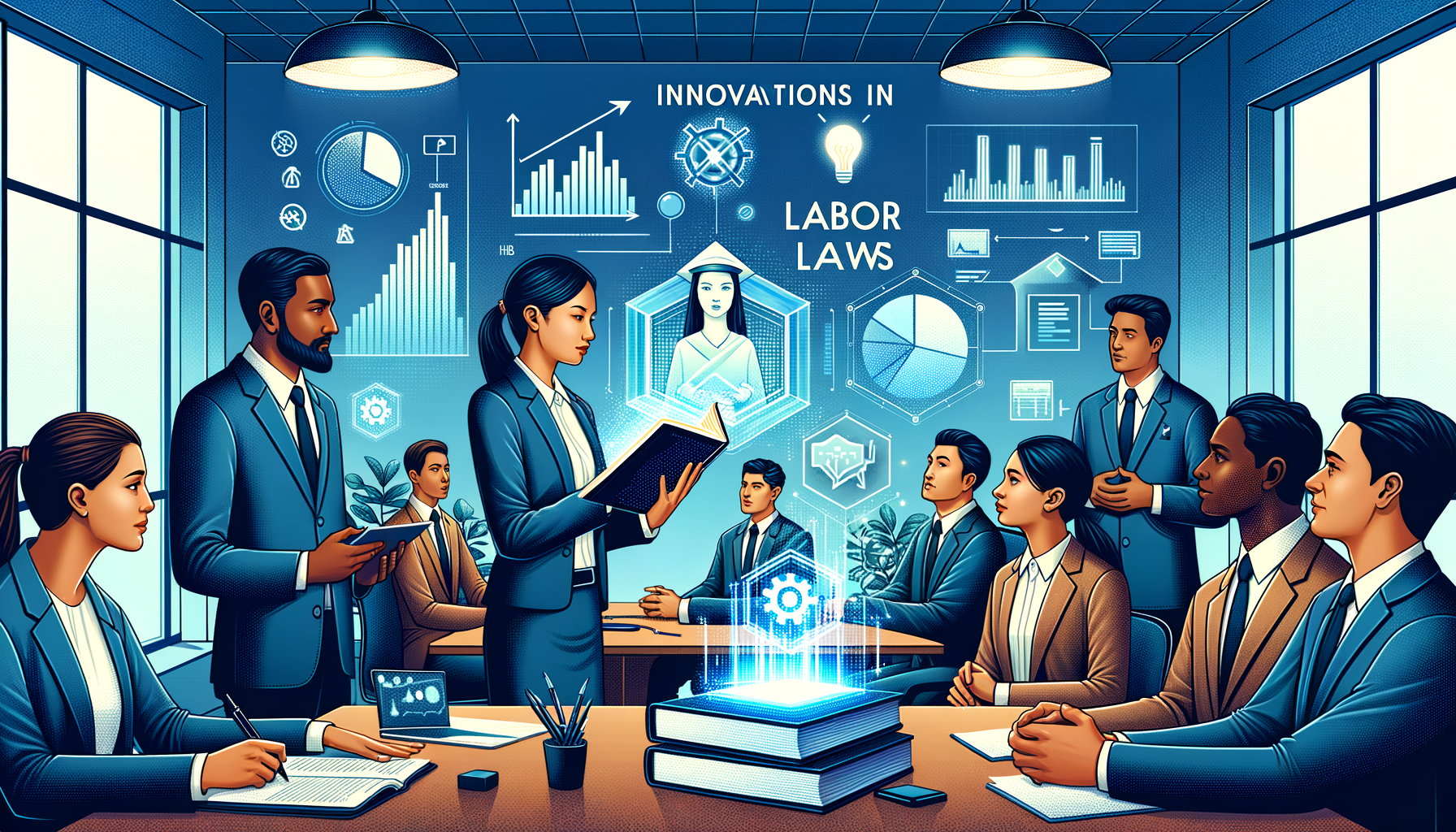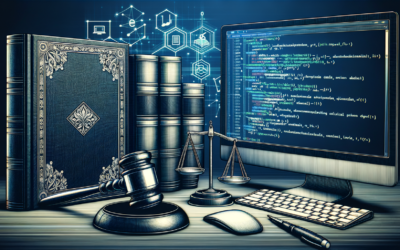Innovations in Labor Law
At a time when technologies are evolving at lightning speed, employment law is not left behind. Digital upheavals and new social expectations have given rise to a host of legal innovations aimed at reconciling flexibility for companies and security for employees.
What is innovation in labor law?
By definition,innovation in labor law concerns the integration of new practices, legal frameworks and technological tools aimed at modernizing relations between employers and employees. This may include the implementation of new forms of contract, the use of artificial intelligence for contract analysis, or new collective bargaining mechanisms.
Modernizing employment contracts
Intelligent and Flexible Contracts
Smart contracts, supported by blockchain technology, offer automation of contractual obligations, reducing the risk of error or fraud. Labor law is beginning to incorporate these concepts to create more flexible and secure contracts.
Portage Salarial and Telecommuting
New forms of employment such as “portage salarial” are developing, giving workers greater autonomy while retaining the advantages of salaried status. Telecommuting, which has become unavoidable, is the subject of regulatory adjustments to secure the rights and duties of both parties.
Technology for Compliance
Regulations and Legal Tools
Compliance is a rapidly expanding field of employment law, not least because of the RGPD. Solutions like RegTech help companies comply with these complex regulations by automating the compliance process.
Privacy Policy
Securing personal data has become a major focus of employment law, affecting employees’ privacy. Legal cybersecurity tools are playing a growing role in protecting against data leaks and privacy breaches.
Artificial Intelligence in HR Management
Analysis and Recruitment Tools
Used to analyze vast quantities of data,artificial intelligence helps refine recruitment and career management processes, becoming an asset for human resources departments.
Training and E-Learning
AI is also transforming vocational training with customized e-learning solutions, responding to the obligation of continuous training and adaptation to the new skills required by the job market.
Social Dialogue and Collective Bargaining
Digital Dialogue Platforms
Online dispute resolution platforms are revolutionizing collective bargaining by providing new spaces for social dialogue, information exchange and conflict resolution.
New Models of Employee Representation
New forms of employee representation are emerging, such as CSEs merging employee representative bodies, or trade unions using social networks to communicate and mobilize.
Frequently asked questions
Here’s a list of frequently asked questions to help you better understand Innovations in Employment Law.
What are the challenges of innovation in labor law?
The main challenges are improving productivity, adapting to new forms of work and complying with legislation, in particular the protection of personal data.
How can blockchain be used in employment law?
The benefits of blockchain lie in the creation of smart contracts that automate and secure transactions, and in the guarantee of an unalterable register for agreements and certifications.
Will artificial intelligence replace HR professionals?
No, AI is a decision-making and analysis tool. It supports professionals in administrative tasks and selection processes, allowing them to concentrate on more strategic functions.
Is the digitization of social dialogue beneficial?
Yes, it allows greater responsiveness and accessibility of information, thus encouraging employee participation and involvement in collective decision-making processes.
The field of employment law is undergoing profound change, driven by digital technology and innovation. Understanding and integrating these developments is crucial for lawyers and HR professionals who want to stay at the cutting edge and respond effectively to current and future challenges.




